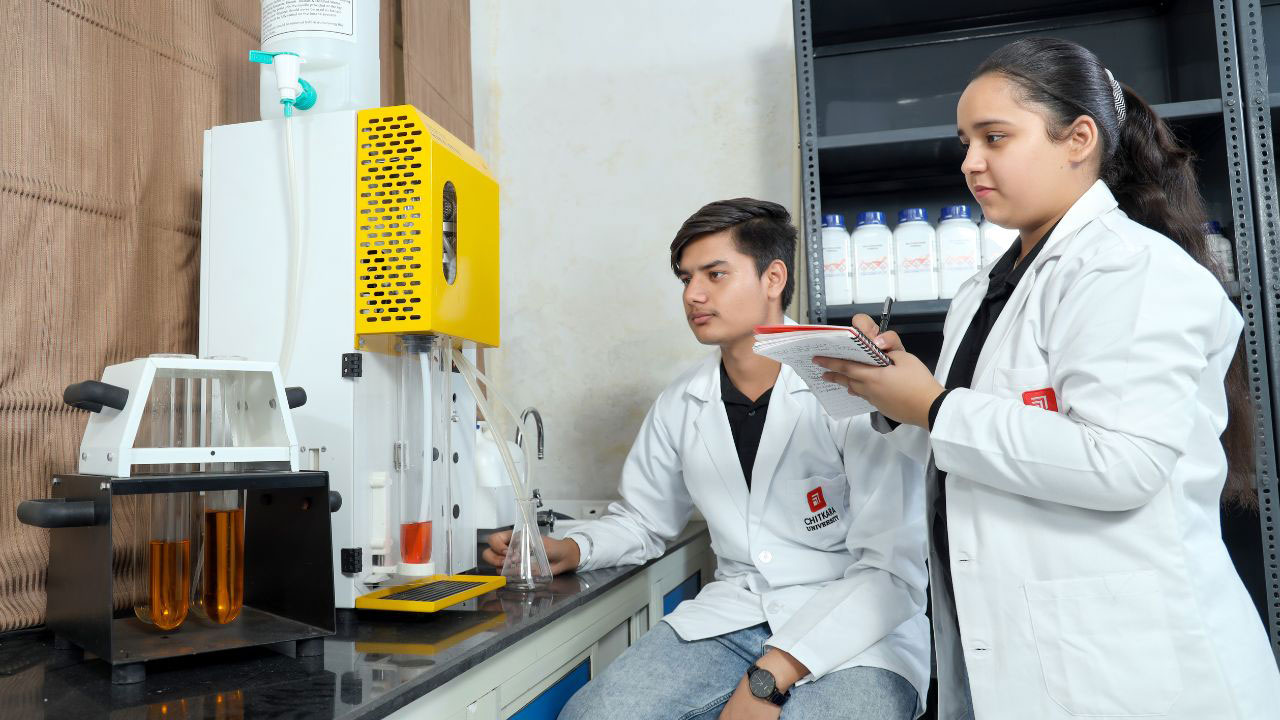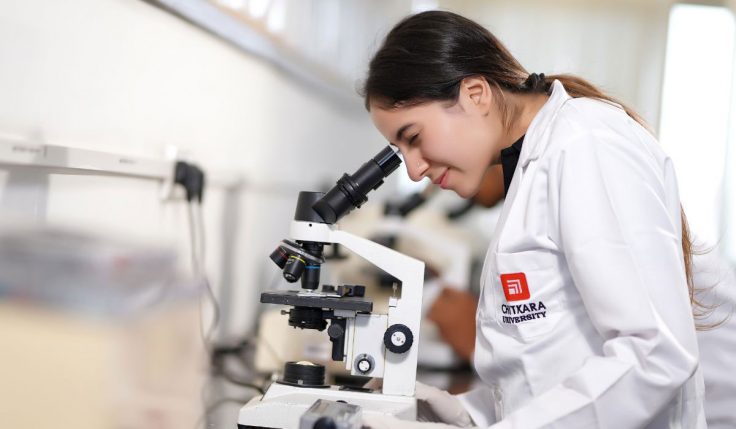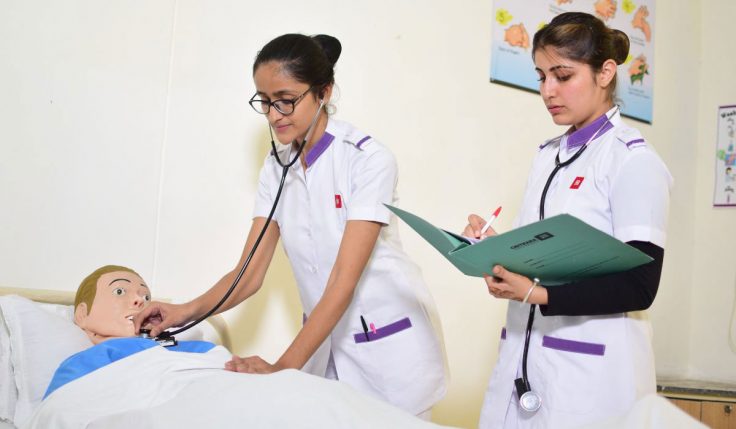While the drug world moves quickly, the M.Pharma (Master of Pharmacy) field changes and gets better all the time. To keep up with how quickly medicine changes, drug schools are changing too. Now, people who work for M. Pharma or go to school there can do more. Let’s look at some of M. Pharma’s new areas and talk about what they mean for the future of medicines regulation, medical research, drug development, and drug science.
Pharmaceutics is the major branch of pharmacy that studies how to make, test, and prepare different doses of drugs. Medicines are following new trends, such as
Nanotechnology: The use of nanotechnology has changed the way drugs are given because it makes them more solid, easy to get, and liquid. By getting drugs to the right parts of the body with nanoparticles, we can treat people better and cut down on side effects.
3D printing in pharmaceuticals: 3D printing is being used more and more in the pharmaceutical industry to make custom-shaped tablets that release drugs at exact rates. With this tech, the amounts of drugs can be changed so that they work best for each patient.
Innovative Manufacturing process: Older ways of making medicines are being replaced by this one because it is cheaper, faster, and better for keeping an eye on quality.
Pharmacology: Pharmacology is the study of how drugs interact with biological systems. It plays a crucial role in drug discovery, development, and clinical practice. Emerging trends in pharmacology include:
Precision Medicine: Precision medicine aims to tailor medical treatment to the individual characteristics of each patient. Pharmacologists are using genetic, environmental, and lifestyle factors to customize drug therapies for maximum effectiveness and minimal side effects.
Pharmacogenomics: Pharmacogenomics is the study of how an individual’s genetic makeup influences their response to drugs. By identifying genetic variations that affect drug metabolism, pharmacologists can predict how a patient will respond to a particular drug and adjust the dosage accordingly.
Clinical study: To find out if new drugs and treatments are safe and effective, we need to do a clinical study. Some new trends in clinical studies are:
Virtual Clinical Trials: People don’t have to go to the place as often because data is gathered remotely using technology. Researchers can study a wider range of people with this method because it makes it easier to find and keep patients.
RWE stands for: “real-world evidence.” This is data that wasn’t collected as part of a normal clinical study. It comes from places like patient files and electronic health records. They use RWE to learn more about how well drugs work in real life and add to the information they get from clinical studies.
Drug Regulatory Affairs: Making sure that pharmaceutical goods follow rules and laws is what drug regulatory affairs is all about. New trends in drug regulation include the following:
More standard drug laws: Laws about drugs are being worked on to be more consistent in different places and countries. This will make it easier for people to get new drugs and speed up the approval process.
Making regulatory processes more digital: Regulatory agencies are using digital tools to make regulatory processes run more smoothly more and more. For example, government papers are now filed online, and the labels on medicines are also now done electronically.
Last but not least, M. Pharma is changing quickly because of new rules and tools for health care and because more than ever, people need personalized medicine. You need to know about these new trends in pharmaceutics, pharmacology, clinical research, and drug regulatory affairs if you want to take advantage of the great opportunities out there.
The Master of Pharmacy (M.Pharm) program at Chitkara College of Pharmacy is designed to provide advanced education and training for high-level research and leadership roles in the pharmaceutical and biotechnology industries. The program integrates basic and applied pharmaceutical sciences with hands-on laboratory research experience, preparing students for careers in drug development, clinical translation, pharmaceutical research, academia, and more.
Also, read this blog post: Top 5 M. Pharma Jobs for Freshers in India
The 2-year, full-time program offers specializations in Pharmaceutics, Pharmaceutical Technology, Pharmacology, Pharmacy Practice, Drug Regulatory Affairs, Phytopharmacy, and Phytomedicine. It includes an internship component to provide students with real-world experience and industry exposure. Graduates of the program have a competitive advantage when seeking employment or admission to doctoral and professional programs.
Chitkara College of Pharmacy has strong industry links and a track record of placing graduates in top pharmaceutical companies and hospitals in India. The program is taught by experienced faculty with strong research backgrounds, and students have access to state-of-the-art laboratories and research facilities.
If you’re interested in pursuing a career in pharmaceutical sciences, the M.Pharm program at Chitkara College of Pharmacy could be a great fit for you.






